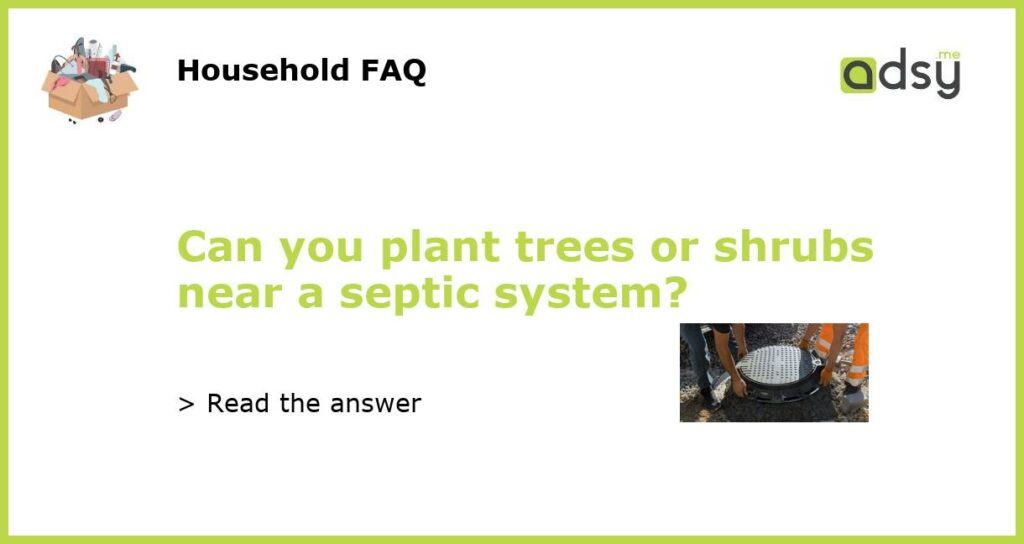Yes, you can plant trees or shrubs near a septic system, but with caution
Planting trees or shrubs near a septic system can enhance the aesthetics of your property and provide shade and privacy. However, it is important to exercise caution and select the right type of plants to avoid potential damage to the septic system. Here are some key points to keep in mind when planting near a septic system:
Consider the root system of the plants
The first thing to consider when planting near a septic system is the root system of the plants. Some trees and shrubs have invasive root systems that can grow deep and spread wide, potentially causing damage to the septic system. It is important to choose plants with non-aggressive root systems.
Opt for shallow-rooted plants
When selecting plants to plant near your septic system, opt for those with shallow root systems. Shallow-rooted plants have roots that extend closer to the surface of the soil, minimizing the risk of intrusion into the septic system. Examples of shallow-rooted plants include flowers, ornamental grasses, and small fruit trees.
Keep an appropriate distance
Ensure that you keep an appropriate distance between the plants and the septic system. This distance will depend on the specific requirements of your septic system and the size of the plants you choose. It is recommended to consult with a professional landscaper or septic system expert to determine the appropriate distance for your specific situation.
Avoid water-loving plants
Avoid planting water-loving plants near your septic system. The excess moisture from the plants can interfere with the proper functioning of the septic system. Plants that require a lot of water or have high water needs should be planted further away from the septic system to avoid any potential issues.
Maintain regular maintenance and inspection
Even if you carefully select the right plants and maintain an appropriate distance, it is crucial to regularly maintain and inspect your septic system. This includes periodic pumping, ensuring proper drainage, and monitoring the overall health and functionality of the system. Regular maintenance and inspection can help identify and address any potential issues before they become major problems.

